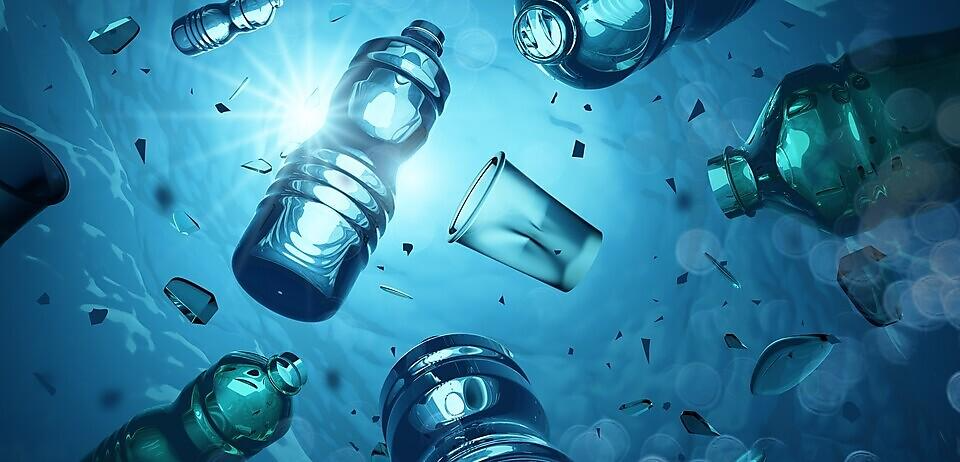Nov 9 2020
According to a new study, the combined environmental risk of ocean acidification and plastic pollution is having considerable effects on species living in the oceans.

Image Credit: University of Plymouth.
An international research team has identified that following three weeks of being immersed in the ocean, the bacterial diversity on plastic bottles was two times as high as on samples gathered from the surrounding seawater.
But in areas with higher carbon dioxide, a huge number of taxonomic groups—such as bacteria that play a vital role in carbon cycling—were negatively affected.
By contrast, other species—such as those that have earlier been shown to thrive in areas of high ocean plastics and to cause disease on coral reefs—were enriched by it.
Moreover, the study revealed that while several groups of bacteria were divided between plastic, free-living, and particle-associated samples, around 350 were identified especially on plastics.
In the Marine Pollution Bulletin journal, the researchers have reported that the study supports increasing evidence that the elevated occurrence of plastic marine debris is offering a novel habitat for bacteria.
But their findings emphasize that local ecological processes and environmental conditions will play a crucial role in determining its wider effect over the coming decades.
The research was headed by the University of Tsukuba (Japan) and the University of Plymouth (UK), in collaboration with Keimyung University (Korea), Kyungpook National University (Korea), and Nanjing University (China).
Researchers immersed several plastic bottles in seas off the Japanese Island of Shikine, a region well known for its CO2 seeps, where the escaping gas gets dissolved into the seawater and makes results in conditions similar to that anticipated to take place globally in the coming years.
Then, they employed a combination of statistical methods and DNA sequencing to investigate how bacteria colonize the plastic compared to the surrounding natural environment, and whether the elevated CO2 levels would cause variations in the distribution of bacteria.
Discarded plastic drinking bottles have become a common sight in our oceans and we were expecting to see them being colonised by different types of bacteria. We also predicted that raised CO2 levels would cause significant changes in the bacterial colonies, but it was still surprising to see the extent of that change and how the raised levels affected species differently.
Dr Ben Harvey, Study Lead Author and Assistant Professor, Shimoda Marine Research Center, University of Tsukuba
“To see beneficial species dwindling while harmful species thrive is an obvious present and future cause for concern,” added Harvey, who is also a graduate of the BSc (Hons) Ocean Science program at Plymouth.
“Up to 13 million tons of plastics from land end up in the oceans each year and they have been shown to affect all types and sizes of marine species. Combine that with rising CO2 levels and the threat posed to the global ocean is stark,” stated Jason Hall-Spencer, Professor of Marine Biology at the University of Plymouth and senior author of the study.
It reinforces the importance of taking steps to meet the standards demanded by international climate treaties so as to reduce the impact of ocean acidification and warming. It is also within our power to change cultures so that litter created on land does not become an environmental hazard in our oceans, both now and for future generations.
Jason Hall-Spencer, Professor of Marine Biology, University of Plymouth
In the past decade, scientists from Tsukuba, Plymouth, and other collaborators have published various studies, illustrating the risks posed by ocean acidification concerning habitat degradation and a loss of biodiversity.
Moreover, this is the latest study carried out by the University of Plymouth into plastics and was awarded a Queen’s Anniversary Prize for Higher and Further Education in 2020 for its ground-breaking analysis and policy effect on microplastics pollution in the oceans.
Journal Reference:
Harvey, B. P., et al. (2020) Ocean acidification alters bacterial communities on marine plastic debris. Marine Pollution Bulletin. doi.org/10.1016/j.marpolbul.2020.111749.
Source: https://www.plymouth.ac.uk/